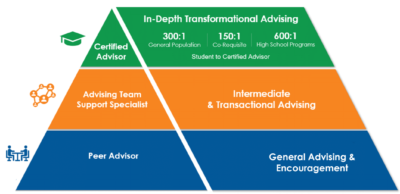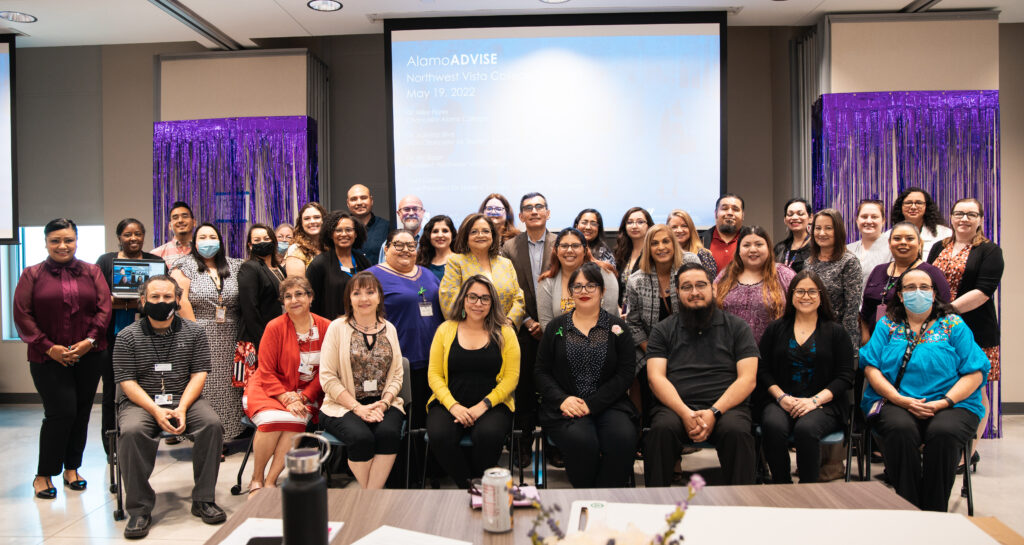In collaboration with Alamo Colleges District leadership, Northwest Vista College held an advising town hall this summer for all NVC Advising staff in an effort to discuss and prepare for a new AlamoADVISE model.
 Approved by the Alamo Colleges Board of Trustees on July 16, the new model will lower the student to Certified Advisor ratio from 350-to-1 to 300-to-1. The ratio for the co-requisite Math and INRW students will be 150-to-1 and Dual Credit students will have a 600-to1 ratio. The goal of this new initiative is to enhance advising for students, provide them with personalized pathways to success, reduce the time to graduation and save them on educational costs.
Approved by the Alamo Colleges Board of Trustees on July 16, the new model will lower the student to Certified Advisor ratio from 350-to-1 to 300-to-1. The ratio for the co-requisite Math and INRW students will be 150-to-1 and Dual Credit students will have a 600-to1 ratio. The goal of this new initiative is to enhance advising for students, provide them with personalized pathways to success, reduce the time to graduation and save them on educational costs.
In addition, the new AlamoADVISE model will expand the peer advisor model across all five colleges.
NVC Vice President Debi Gaitan said she would like to thank NVC Dean Robin Lund, Christina Brown, director of NVC Advising, and the entire advising team for their ongoing and exceptional support they provide to students.
 AlamoADVISE provides students with a personalized academic/career pathway through the support of a certified advisor. AlamoADVISE’s goal is to close academic and completion gaps for underrepresented students. Some of its metrics include increase student credential completion and decrease the time a student takes for a student to transfer or earn their associates degree.
AlamoADVISE provides students with a personalized academic/career pathway through the support of a certified advisor. AlamoADVISE’s goal is to close academic and completion gaps for underrepresented students. Some of its metrics include increase student credential completion and decrease the time a student takes for a student to transfer or earn their associates degree.
Alamo Colleges organizes programs into career clusters called AlamoINSTITUTES. The clusters provide a starting point for the student, enrollment coach and assigned advisor to identify a career interest and begin to create a tailored individual pathway. Transfer Advising Guides or TAGs are part of this process and are used by advisors to ensure courses can transfer.
In the 2020-2021 academic year, the Alamo Colleges developed a total of 1,380 TAGs. This past May, the district earned national recognition from the American Association of Community Colleges for its work of offering seamless pathways that lead to student success through its Transfer Advising Guides.
On average, TAGs provide $40,215 savings at public universities and $65,435 at private universities. In 2020, the potential savings for the 8,324 students who transferred and followed an agreed upon TAGs for the university of their choice was $374 million.

